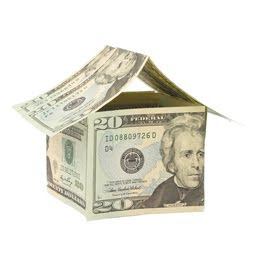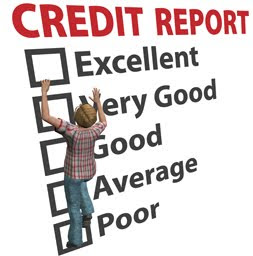Want a Mortgage? Is Your FICO Credit Score 780?
Want a mortgage? The real question you should be asking yourself is how high is your FICO credit score.
CoreLogic released its U.S. Housing and Mortgage Trends report this week, providing fresh data on housing sales, valuation, negative equity and foreclosure activity and trends.
According to the report, 2010 home sales declined to the lowest level since the collapse in the housing market. Home prices dropped, too, those declines being driven by huge supply/demand imbalances and the rising impact of distressed sales.
CoreLogic concluded, if current trends persist, home prices are expected to be down over 10 percent year-over-year by the spring. Sounds like the market is going to get even more buyer friendly, right?
Well, if you're the right kind of buyer this might be good news, but it's getting harder for potential home buyers to get a loan and if you don't have a strong FICO credit score (the type of credit score the vast majority of mortgage lenders pull) you're in trouble.
If you think a huge inventory of homes for sale this spring will make it easy for you to buy a new home, think again. CoreLogic found that:
- 60 percent of conventional mortgages originated in 2010 had a FICO score of at least 780;
- In 2005, a mere 25 percent of new loans had FICO scores at 780;
- Buyers will need at least 20 percent down for home loans to get the best rates.
Technically, FHA will insure loans with just a 500 score, but with a record level of defaults and the capital accounts falling below required levels, minimizing taxpayer risk is a high priority (and 2012 isn't that far away).
Plus, FHA loans aren't exactly cheap anymore. On Tuesday, the FHA announced its annual mortgage insurance premium (MIP) is going to rise another 0.25 percent in April 2011. That's on top of another rise last year. The move is offset the HUD budget and help reduce the number and risk of FHA insured loans.
The bottom line: If you want to buy a home with the best mortgage available, you'll need as high a credit score as you can muster. With that in mind, here's some advice on raising your credit score.
How To Raise Your Credit Score
Your credit report is a history of how you pay your bills. It includes your credit accounts--mortgages, student loans, credit cards, and auto loans--and shows if you've been late or on time with your payments, the balances on these accounts, and who else has been looking at your credit report.Your credit score is calculated from a formula based on the components of your credit report. While the score is a good reflection of you and your financial capabilities, there's still room for interpretation. A lender or creditor will look at your score as another element in determining the risk in lending to you or giving you credit.
Some consumers think of credit scores as a mysterious financial calculation over which they have no control. The truth is, only you have control over your credit score.
There's a set formula the credit bureaus follow to calculate your credit score and there are 5 steps you can take to raise your credit score:
- Pay your bills on time and in full. Do you make your payments on time or are you late? If you're late, how late are those payments? Are you paying in full or only making minimum payments?
- Reduce amounts owed and increase available credit balances. Creditors look at how much installment and revolving debt you owe. But they also want to know what percentage of your available credit balance you are using.
- Keep credit accounts open. Even if you don't use a certain credit card anymore, if you have a history of paying that bill on time, keep it open. Having a long history with an account shows the credit bureaus and lenders you can manage your payments responsibly over time.
- Don't open too many new credit accounts. Opening several new accounts can affect your length of credit history, your available balances and could negatively impact your credit score.
- Maintain a variety of types of credit. Creditors like to see a variety of types of credit, including installment loans (such as auto loans), revolving loans (such as a mortgage or home equity loan), and open credit accounts (such as credit cards).
It's basic math - handle these two things well and you're more likely to have a higher credit score, generally speaking.
The last three factors only account for 35 percent of your credit score calculation, but if you keep applying for new lines of credit or close out new accounts, it will affect your score.
One final piece of advice, if you're thinking about buying a house, make sure your credit score is where you want it to be before you start shopping for a mortgage. Too many credit inquiries from mortgage lenders can also cause your score to drop.
More on MoneyWatch:
- HUD 2012 Budget Highlights: You're Screwed
- Report: Smaller FHA Loans Reduce Taxpayers' Risk
- Home Values Decline Further in 4Q 2010
- Biggest Losers and Biggest Winners: Where Home Values Are Rising And Falling
- Top 10 States For Foreclosures in 2010
- Foreclosure Lawsuit Upset: Court Rules Against Wells Fargo and US Bancorp
- FHA's Reverse Mortgage Standards Get Tougher in Response to Increased Delinquency
- Pending Home Sales Up in November, Realtors Provide Economic Forecast for 2011
- 10 Best Cities to Rent Rather Than Buy
- Home Improvement: Remodeling Projects with Biggest Payoff
- Most Expensive Housing Markets In America
- Top 5 Markets For Great Real Estate Deals
- Housing Prices Rebounding Here
- Tea Party: Don't Let Renters Vote
- Are You Getting Screwed by Your Lender?
- Foreclosure Process Shows Mortgage Lending Isn't The Only Problem
- Real Estate Crisis Continues - Non-Residential Construction to Fall 20% by End of 2010
- Jobs, Small Businesses, Payrolls, and the Economy
- Loan Modification Hell: New Solutions To Avoid Losing Your Home
- Bank of America, Ally Bank Extend Foreclosure Freeze to All 50 States

Ilyce R. Glink is the author of several books, including 100 Questions Every First-Time Home Buyer Should Ask and Buy, Close, Move In!. She blogs about money and real estate at ThinkGlink.com and The Equifax Personal Finance Blog, and is Chief Content Strategist at RealtyJoin.com, a community for real estate investors.

